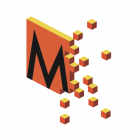Many ed-tech entrepreneurs are currently attempting to address this problem with games and electronic media. It's probably an oversimplification to say they're attempting to update the textbook because to understand precisely what they are trying to do, we need to step outside of our habitual way of thinking about school and learning.
Game-based learning and electronic media enable us to blur the boundaries that separate the delivery of content, drilling for practice, and assessment. And in an educational atmosphere where those boundaries dissolve, the textbook becomes obsolete. Certainly, there is still academic content, but that content suddenly becomes interactive. The texts can be more easily and immediately tied directly into a broad set of activities and projects. Video and other multimedia content can be integrated right into the text -- perhaps videos of teachers--enabling the kind of flipped instruction that is rapidly becoming popular.
One company that is really pushing a new approach is Amplify Learning. They call their tablet-based platform a "digital curriculum." In time for fall 2014, they released ELA programming for sixth, seventh, and eighth grade students that includes more than 300 books and "academic lessons authored by world-class intellectuals." Amplify has always focused on the content, and in addition to comprehensive interactive reading and writing activities, they also include some pretty dramatic and animated readings of classic texts.
At the time of release, Amplify CEO Joel Klein said, “This is not some old wine in a new bottle, like a digitized textbook with a few animations. We’ve brought together world-class instructional materials, rich multimedia and a powerful analytics engine that will transform the way teachers teach and students learn.”
What’s most intriguing is the way Amplify curriculum integrates games. They're designing a suite of tablet-based games that are not envisioned as part of the formal curriculum, but rather as opportunities for additional student directed playful learning.
One such game is meant to let students experience the process of metabolism from the inside. It’s a fun game, where players need to manage their resources carefully in order to win. Students need to understand how each resource plays a part in the metabolic system. The game teaches basic biological literacy. Amplify is also making some other impressive biology, environmental science, math and literacy games.
"The goal of our games is to both help recapture lost learning time—both after school and during holidays—and engage kids in ELA, math and science in ways that weren't possible until now," Klein said in an interview. When I asked him if he thought electronic media would detract from more traditional forms of text-based learning he said, "Our goal is to encourage more reading and more writing. I think that if we can help middle school children develop a love for reading books, the positive impacts of that will be felt across their entire educational career."
The game Lexica is a great example of Amplify’s approach to games. Lexica is a literacy game that Greg Toppo covered beautifully in USA Today. Toppo describes Lexica as “a massive role-playing game for young teens that invites them to interact with characters from great novels and read the books outside of class if they want to get ahead in the game."
Players free classic book characters that have been trapped in an imaginary library by an evil empire. By reading the books, students learn what kinds of powers the characters can offer them. They are motivated to save the characters and to do so they need to read the books.
Lexica is so comprehensive that the sheer scale of complexity overwhelms. There are even mini games that, like everything in Lexica, require familiarity with the characters and plots of classic books.
Many teachers have concerns about Amplify’s corporate origins and connections to News Corp mogul Rupert Murdoch. Questions about private for-profit curriculum development and the conflation of media and education demand a lot of consideration. And Amplify is not the only company we should approach with caution. But for the purposes of this post, it is the quality and ingenuity of the curriculum that interests us, the way the company's curriculum designers are rethinking not only the textbook, but also educational content delivery in general.
Other companies are developing games that are imagined to be played all semester long. These are often multiplayer games that classes play together. For example, Muzzy Lane has developed a series of games that provide an immersive experience for students. There is one, in particular, called Government In Action that’s designed to allow students to “role play a member of Congress as a way of exploring American Government.”
Students sponsor bills, trade in influence, awareness, and approval. The game simulates meeting with lobbyists, donors, and volunteers. The object is to get reelected to office. It is a strategy game that requires students to become familiar with the mechanics and processes of U.S. government.
When a role-playing game like this supplements typical classroom content, students see how their new knowledge manifests as better in-game performance. They learn how the government of the United States works through the experience of digital simulation rather than through memorizing textbook blurbs and taking quizzes. The knowledge is contextualized and the motivation is intrinsic.
For middle school students, there are games like Historia. This game started as a paper-based role playing game in which students “work in teams to lead fictional civilizations that compete alongside (and sometimes against) the great empires of the past.” Now it's being developed into a tablet, or PC based game that uses new ed-tech. One of the great things about Historia is that, like a textbook, it forms the skeleton of a full curriculum. However, it also requires traditional teaching and ordinary research skills. Students use the information from book-based learning, handouts, videos, and other academic materials as if it were a collection of "power-ups" meant to give them the strength they need to succeed in the game.
The thing about interactive electronic media is that it allows us to rethink the way we interact with information. The internet has already changed the way we think about media and now it is time to let it redefine the way we think about content in general. Academia was about participatory knowledge construction long before buzzwords like “crowd-sourced” entered our mainstream vernacular. But many of our academic conventions, like the textbook, have neglected to preserve the spirit of collaboration. Even worse, these methods of teaching have taught generations of young people that facts are fixed.

 Just as we need to move away from a top-down model of teaching, we also need to move away from the textbook. In an ideal world, all learning would happen through direct engagement with primary texts. But unfortunately, not everyone can be a historian, perusing through documents and artifacts to piece together an account of the past. Nor can everyone read Euclid and Pythagoras in the original Greek. Some summarizing, briefing, and encapsulating will always be necessary. But is the problematic textbook really the only way?
Just as we need to move away from a top-down model of teaching, we also need to move away from the textbook. In an ideal world, all learning would happen through direct engagement with primary texts. But unfortunately, not everyone can be a historian, perusing through documents and artifacts to piece together an account of the past. Nor can everyone read Euclid and Pythagoras in the original Greek. Some summarizing, briefing, and encapsulating will always be necessary. But is the problematic textbook really the only way?